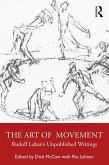This study is the first monograph on the work of French choreographer Jérôme Bel, following his artistic trajectory from the beginning of his career as a choreographer in 1994 to his most recent piece in 2016. It contains an overview and in-depth analysis of all of his choreographies, from Nom donné par l'auteur to Disabled Theatre, and provides a theoretical reflection on their theatrical nature.
Bel has developed a singular discourse on dance that has often been labelled 'conceptual'. By reducing the stage elements in his performances to a minimum, his work explores the implications of dance as an art form that has, since the heyday of modernism, based its guiding principles on the laws of nature. Bel addresses the question of power relations in dance by working through the questions of authorship and various forms of subjectivity dance produces. Offering a unique opportunity to ground seemingly
abstract academic theories in a specific embodied artistic practice, this study explores the intersection between artistic practice and theory.
Dieser Download kann aus rechtlichen Gründen nur mit Rechnungsadresse in A, B, BG, CY, CZ, D, DK, EW, E, FIN, F, GR, HR, H, IRL, I, LT, L, LR, M, NL, PL, P, R, S, SLO, SK ausgeliefert werden.









